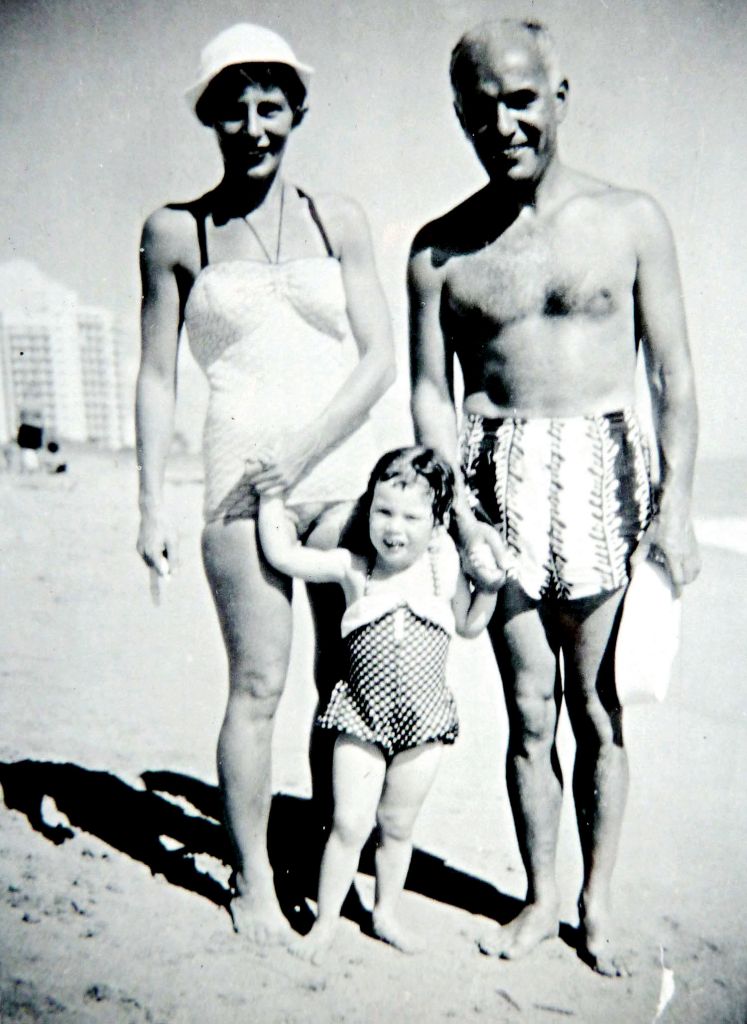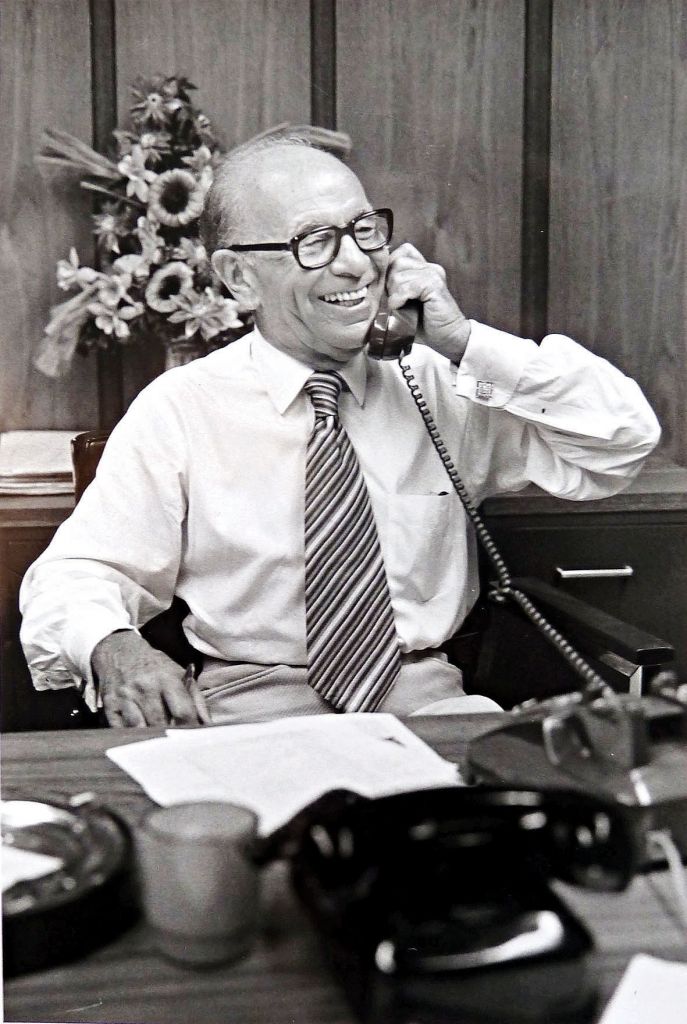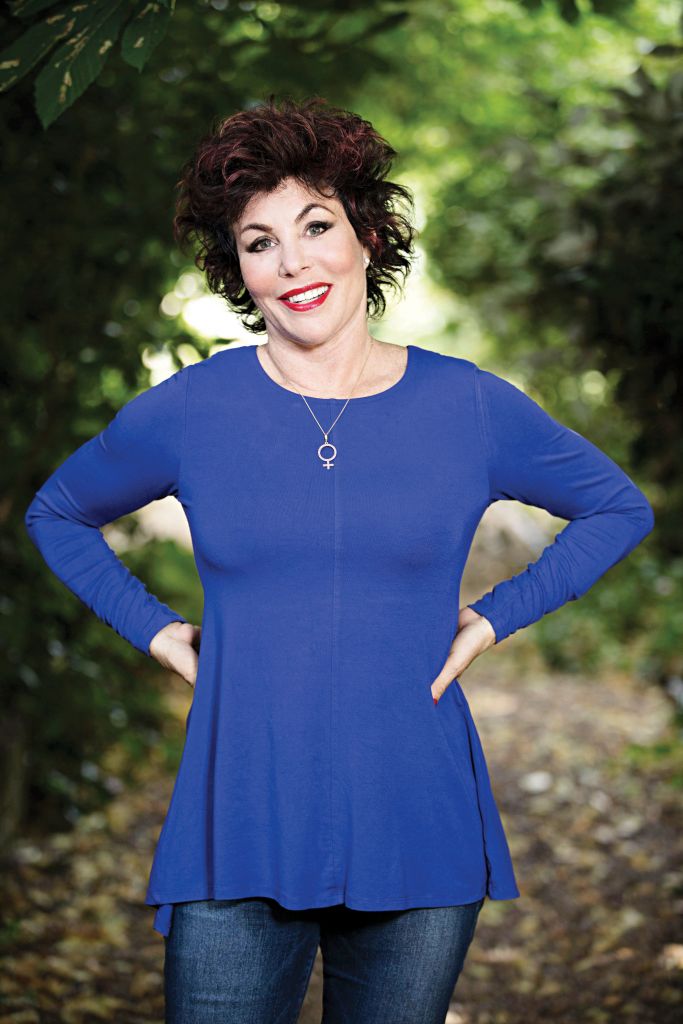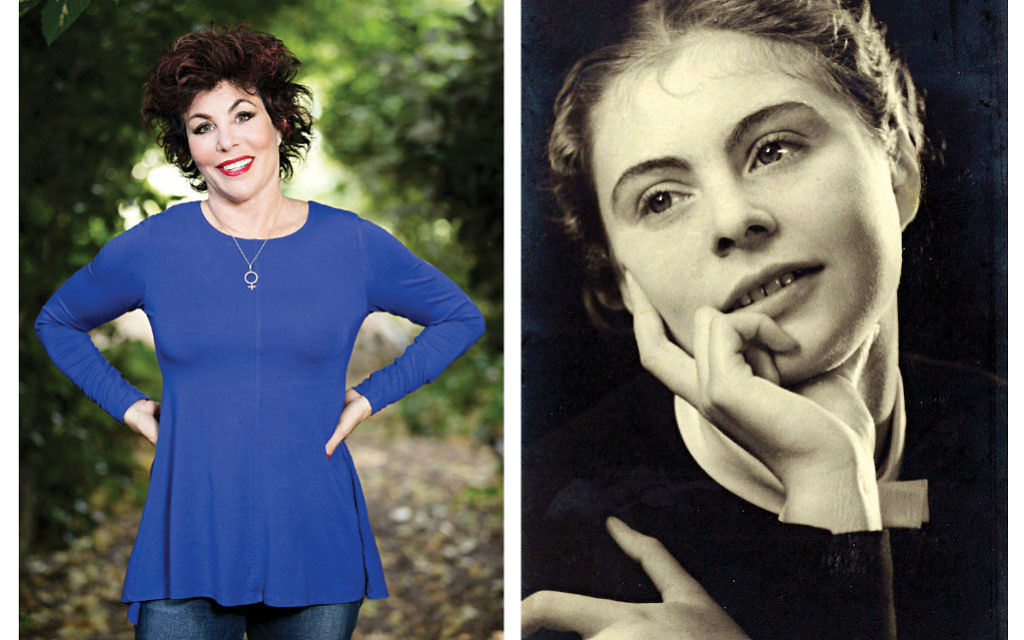Ruby Wax discovers her family’s Holocaust trauma in ‘Who Do You Think You Are?’
American comedienne finds answers to why her family never spoke about the Shoah, in the BBC's celebrity genealogy series
Twenty years ago, Ruby Wax was sifting through her late parents’ attic when she came across a large leather suitcase filled with photographs and documents. There were even letters referring to “Ella” and “Salo”, but the American-born comedienne had little clue as to who they were.
It was just another unknown aspect of Wax’s family history, one that she had struggled to figure out ever since she was a child.
She knew little about why her mother always seemed hysterical, why her father always shouted and why they both remained steadfastly tight-lipped about the Holocaust.
Get The Jewish News Daily Edition by email and never miss our top stories Free Sign Up
Now those answers have come to light for the 64-year-old actress and author, who delves into her past in next week’s episode of Who Do You Think You Are?
Aside from discovering more about how the Holocaust impacted her parents, Wax also uncovers a family history of mental ill health and depression – something with which she, too, has struggled and which compelled her to retrain as a psychotherapist in recent years.
As the episode begins, Wax describes how her parents, Edmund Wachs and Berta Goldmann, escaped Austria before the outbreak of the Second World War and settled in Chicago.
She recalls that her mother would scream out disconnected thoughts – “the language was nuts” – while her father was volatile.
“He was…as she called him, ‘a torturer’. Obviously they must have had a hideous relationship.”

But her assumptions are soon turned on their head. Travelling first to Vienna, Wax finds out that her father was thrown into prison in April 1938, just weeks after Austria was annexed to Germany, simply because he was Jewish.

And one of the now-translated letters from the suitcase reveals her mother wrote to Edmund while he was in prison.
A surprised Wax exclaims: “I had no idea that my mother loved my dad… saying that she cried every day… I had no idea that they really loved each other.”
Another startling revelation is that during his time in prison, Edmund and his fellow Jewish prisoners were tortured. He eventually secured his release, but only on the condition of leaving Austria – or else risk being deported to Dachau concentration camp.
Edmund and Berta hastily married, but she was unable to leave for Belgium with him. He later stowed away on board a ship to the US, while Berta obtained a US visa and the pair were eventually reunited in December 1938.
Wax comes to understand that her mother would have still been in Vienna during Kristallnacht, a series of orchestrated Nazi attacks against Jewish homes, businesses and synagogues, which took place on 9 November 1938.

“She never mentioned it,” exclaims Wax. “Do you think that explains why she was out of her mind?”
As she continues tracing her family history, a genealogist reveals that “Ella” and “Salo” referred to in the letters were Ella and Salomen Birer, her maternal great-aunt and uncle. The letters heartbreakingly reveal that the couple had desperately pleaded with Berta help secure a US visa for them.
“You can’t even imagine how afraid we are,” wrote Ella. By the time Berta had the necessary documents to help them, the US Government had changed its requirements and just weeks later, the Third Reich had stopped all emigration.

Wax feels compelled to find out what happened next to Ella and Salo, as well as the rest of her maternal grandfather’s family – a journey of discovery that she feels has finally provided the answers she was looking for.
She quips: “You know, I could have saved myself a lot of time and money. Rather than doing therapy, I should have been doing genealogy. Now knowing my ancestors, I understand a lot more about myself.”
Ruby’s family story is revealed in full on Who Do You Think You Are?, which is broadcast on Wednesday, 4 October, 8pm, BBC One

Thank you for helping to make Jewish News the leading source of news and opinion for the UK Jewish community. Today we're asking for your invaluable help to continue putting our community first in everything we do.
For as little as £5 a month you can help sustain the vital work we do in celebrating and standing up for Jewish life in Britain.
Jewish News holds our community together and keeps us connected. Like a synagogue, it’s where people turn to feel part of something bigger. It also proudly shows the rest of Britain the vibrancy and rich culture of modern Jewish life.
You can make a quick and easy one-off or monthly contribution of £5, £10, £20 or any other sum you’re comfortable with.
100% of your donation will help us continue celebrating our community, in all its dynamic diversity...
Engaging
Being a community platform means so much more than producing a newspaper and website. One of our proudest roles is media partnering with our invaluable charities to amplify the outstanding work they do to help us all.
Celebrating
There’s no shortage of oys in the world but Jewish News takes every opportunity to celebrate the joys too, through projects like Night of Heroes, 40 Under 40 and other compelling countdowns that make the community kvell with pride.
Pioneering
In the first collaboration between media outlets from different faiths, Jewish News worked with British Muslim TV and Church Times to produce a list of young activists leading the way on interfaith understanding.
Campaigning
Royal Mail issued a stamp honouring Holocaust hero Sir Nicholas Winton after a Jewish News campaign attracted more than 100,000 backers. Jewish Newsalso produces special editions of the paper highlighting pressing issues including mental health and Holocaust remembrance.
Easy access
In an age when news is readily accessible, Jewish News provides high-quality content free online and offline, removing any financial barriers to connecting people.
Voice of our community to wider society
The Jewish News team regularly appears on TV, radio and on the pages of the national press to comment on stories about the Jewish community. Easy access to the paper on the streets of London also means Jewish News provides an invaluable window into the community for the country at large.
We hope you agree all this is worth preserving.
-
By Laurent Vaughan - Senior Associate (Bishop & Sewell Solicitors)
-
By Laurent Vaughan - Senior Associate (Bishop & Sewell Solicitors)
-
By Laurent Vaughan - Senior Associate (Bishop & Sewell Solicitors)
-
By Laurent Vaughan - Senior Associate (Bishop & Sewell Solicitors)






















